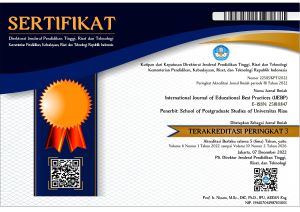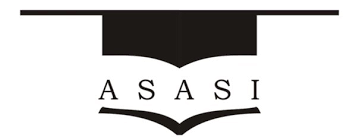ANALYSIS OF EFL STUDENTS’ CITATION PRACTICES AND PROBLEMS IN ACADEMIC WRITING
DOI:
https://doi.org/10.31258/ijebp.2.1.62-72Keywords:
citation, plagiarism, EFL students, academic writing, research proposalAbstract
Citing sources correctly is vital in academic writing including research proposals. Despite its significance, students seem to perform it poorly due to lack of knowledge and awareness of its role in their writing. As the result, they are often accused of committing plagiarism. One of the ways to prevent students from committing plagiarism is by providing them with sufficient knowledge and skills related to proper citations. This study is a preliminary effort to identify student citation practices within the English Education department of a state university in West Kalimantan, Indonesia. Employing qualitative content analysis, the researcher examined samples of students’ proposals to describe the ways in which citations were written and the common problems that occurred. The findings suggest that students mostly cited as non integral/non-reporting. The study also reveals that students’ most common mistakes in the citation are found in language and content. The study concludes with the need to provide students with clear guidelines for citation and strong remarks on plagiarism.
References
Bogdan, R. C., & Biklen, S. K. (2007). Qualitative research for education: An introduction to theories and methods (5th Ed.). New York: Pearson.
Gullifer, J., & Tyson, G. A. (2010). Exploring university students’ perceptions of plagiarism: a focus group study. Studies in Higher Education, 35 (4), 463-481.
Gullifer, J., & Tyson, G. A. (2013). Who has read the policy on plagiarism? Unpacking students’ understanding of plagiarism. Studies in Higher Education, DOI: 10.1080/03075079.2013.777412
Hinkel, E. (2004) Teaching academic ESL writing: Practical techniques in vocabulary and grammar. Mahwah, NJ: Lawrence and Erlbaum Associates, Inc.
Hyland, K. (1999). Academic attribution: Citation and the construction of disciplinary knowledge. Applied Linguistics, 20(3), 341-367.
Jalilifar, A., & Dabbi, R. (2013). Citation in applied linguistics: Analysis of introduction sections of Iranian Master’s theses. Linguistik Online, 57 (7), 91-104.
Kashkur, M., Parshutin, S., & Borisov, A. (2010). Research into plagiarism cases and plagiarism detection methods. Scientific Journal of Riga Technical University, 138-143.
Lamptey, R. B., & Atta-Obeng, H. (2012). Challenges with reference citations among postgraduate students at the Kwame Nkruma university of science and technology, Kumasi, Ghana. Journal of Science and Technology, 32(3), 69-80.
Lim, V. K. G., & See S. K. B. (2001). Attitudes towards, and intentions to report, academic cheating among students in Singapore. Ethics and Behaviour, 11(13), 261-275.
Lillis, T. (2013). The sociolinguistics of writing. Edinburgh: Edinburgh University Press.
Lipson, C. (2006). Cite right: A quick guide to citation styles- MLA, APA, Chicago, the sciences, professions, and more. Chicago: The University of Chicago Press.
Lund University. (2011). Academic writing in English. Lund University. Retrieved March 15th, 2017 from http://awelu.srv.lu.se/sources-and-referencing/quick-guides-to-reference-styles/mla/#c7782
Merriam, S. B. (2009). Qualitative research: A guide to design and implementation. Revised and expanded from qualitative research and case study applications in education. San Fransisco: Jossey-Bass A Wiley Imprint.
Okamura, A. (2008). Citation forms in scientific texts: Similarities and differences in L1 and L2 professional writing. Nordic Journal of English Studies, 7 (3), 61-81.
Park, C. (2003). In other (people’s) words: Plagiarism by university students-literature and lessons. Assessment & Evaluation in Higher Education, 28 (5), 471-488.
Schreier, M. (2014). Qualitative content analysis. In U. Flick (Ed.), The SAGE handbook of qualitative data analysis (pp. 170-183). London: SAGE.
Sun, Y. (2008). Citation problems of Chinese MA theses and pedagogical implications. The Journal of ASIA TEFL, 5 (1), 1-27.
Wallwork, A. (2011). English for writing research papers. New York: Springer.





